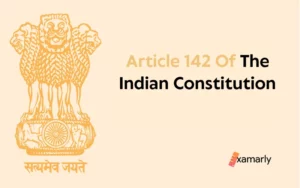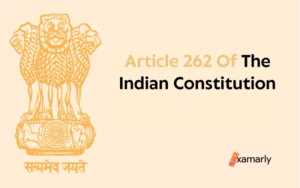Since UPSC is an arduous exam, many aspirants wonder about the study hours for UPSC Examination Preparation on a daily basis. Many of us are stuck around the question, “How many hours of study is required for UPSC?”.
When an aspirant begins to practice their preparation/revision strategy for UPSC, they often fall prey to sitting 15-16 hours a day as many suggest them do so. It doesn’t matter how long you study, whether 6-7 hours or 10 hours during your exam preparation time. It is how much you gained while preparing for UPSC that matters the most.
Everyone is a different kind of aspirant, a different kind of learner. The capacity to consume and process knowledge greatly differs among individuals. Hence to answer the question, the perfect answer would be to start by defining the present level you are in (beginner, intermediate, or advanced), in your preparation journey.
You can take a placement test to know your present level. The result of the placement test will help you determine your target and create a roadmap that exclusively works for you during the examination.
In this article, we’ll help you figure out your requirement for the study hours for UPSC.
- Deciding Factors of Study Hours for UPSC Preparation
- Are Long Study Hours Really Required for UPSC?
- 3 Major Problems with Long Study Hours
- 1. Decreased Level of Interest
- 2. Inability to Maintain Productivity
- 3. Scaled-down Capacity of the Brain
- How to Plan Study Hours for IAS Preparation Effectively?
- Tips to Improve Productivity in Study
- 5 Ingredients for the 4 Hours/Day Study Plan
- Conclusion
- FAQs about How Many Hours of Study is Required for UPSC
Deciding Factors of Study Hours for UPSC Preparation
Whether its the prelims exam, the UPSC mains exam or any optional subject, for every individual the number of effective learning hours is different. It depends on the following 3 factors:
- Aspirants’ target: The target of the UPSC aspirants should have to be around completing the syllabus at least twice, doing revision a couple of times, and having an adequate amount to practice/give mock tests of both GS Paper I and GS Paper II( i.e. CSAT), where the objective of both GS Paper I and CSAT Paper is different.
- Aspirants’ stamina: One of the important factors of maintaining consistency while preparing for UPSC is studying according to your mental stamina.
- Aspirants’ capacity: So that they can better utilize the time to add value to the UPSC Preparation.
You Might Also Like To Read: UPSC Full Form.
Are Long Study Hours Really Required for UPSC?
- Why does anyone want to study for longer durations?
- Why do you want to increase your number of hours?
- Why do you want 14-16 hours of study per day?
Have you ever thought about such questions? If yes, it would be because you want to learn or gain more. This indicates you are on the wrong side of your UPSC CSE Preparation and are just pacing up the syllabus.
Increasing the hours beyond a certain limit will not only prove to be futile but can act counter-productive. Instead one should focus on smart work.
Have you ever identified your need behind the hours? For you, the motto should not be to achieve the number of hours but to gain & retain quality education/knowledge.
Related Article: Time Management For UPSC Preparation.
3 Major Problems with Long Study Hours
Here are some problems that aspirants may face by sitting long hours for the Civil Services Exam Preparation daily:
1. Decreased Level of Interest
Initially, if aspirants sit for 10 to 12 hours per day, it may be fruitful but after a week or two, the initial enthusiasm may prove to be hectic and tiring for you. With each passing day, you are unable to maintain the same energy level that you usually have. Remember, excessive monotonicity will only cause a decreased interest.
With such a vast syllabus, your interest will decline gradually with every passing day.
2. Inability to Maintain Productivity
Most of the successful UPSC CSE aspirants used to learn for more than 8 or 9 hours per day. The problem is not the number of hours but that most of them are unable to maintain the same level of productivity for such a prolonged period of time in a single sitting.
When you start sitting for long hours, you’ll probably miss out on mock tests which will exponentially hamper your preparation & results.
3. Scaled-down Capacity of the Brain
If you observe the graph of brain capacity against learning time, you will notice a downward slope with each passing hour. In other words, the capacity of the brain to retain or understand will gradually decline with each rolling hour.
The learning process should be enjoyable, not painful.
Related Article: Self Assessment For UPSC.
How to Plan Study Hours for IAS Preparation Effectively?
To sketch out the number of hours to prepare effectively for IAS Preparation, one should:
- Include breaks: It is true that UPSC CSE preparation needs extreme discipline, but no one can learn at a high intensity daily. You will need to take a small breaks at regular intervals so as to maintain the intensity of focus in order to retain and learn more.
You should include a break of around 10-15 minutes after every 1.5-2 hours so that you are able to sustain the knowledge in your memory. During longer hours the brain cannot be at the same level of understanding capability. This will help you enjoy life while also giving you better sleep., - Sharpen your memory: To sharpen your memory, always keep at most 2 hours(daily) in your hand for revising previous learnings. This will not only exercise your mind to retain and grab facts and concepts but also exercise your brain for recalling the things that are previously studied.
Always remember, that quality of time is more important than quantity.
You Might Also Like To Read: IAS Full Form.
Tips to Improve Productivity in Study
As we discussed the question should not be “How many hours of study is required for UPSC?” Rather, it should be “How to improve my productivity while studying?” Some of the top tips to keep in mind for effective study while preparing for the UPSC Civil Service Exam are:
- Break the number of study hours into smaller segments.
- Don’t cram, try to understand the points, facts, or concepts.
- Avoid distractions.
- Study with utmost focus and full concentration.
- Have a fulfilling sleep.
This article on How To Prepare For UPSC Exam Without Coaching might help you if you’re planning to begin your preparations on self-study mode.
5 Ingredients for the 4 Hours/Day Study Plan
1. Right Time
UPSC is the toughest exam in India. You need ample time to prepare for success. This time should not be in hours of study but in months of preparation. The earlier you start the better it will be.
Toppers suggest that one should prepare for one full year following a good routine and study plan. If you plan to do it in lesser days you will only be burdening yourself with unwanted stress.
The focus needs to be on the duration of preparation rather than the duration of the study.
2. Right Plan
Everyone is different and the key to success lies in understanding ourselves and making the right plan. One needs to understand their weak and strong areas and decide what needs more attention according to the syllabus. Examarly helps you figure that out quickly & efficiently.
According to that, a proper study plan should be made. Choosing a subject and making a plan also needs your own ability to be taken into consideration.
3. Right Source
After deciding on the subject and study plan, selecting the right books is essential. What is more essential is choosing just one book for one topic.
Multiple sources and books will only bring more confusion than knowledge. Don’t get allured by multiple books that your friends might be referring to.
You Might Also Like To Read: Booklist For UPSC By Toppers.
4. Right Focus
As discussed earlier, at least one year is required to prepare better for UPSC. Such a long time is enough to make you lose motivation at times. The only thing that will help you is focusing on your study plan and not letting your zeal die in the process.
That is why, a minimum of four hours a day are suggested as the ideal scenario to study to make you retain better and can increase focus. Remember, the quantity of hours doesn’t matter but the quality of study does.
5. Right Method
The right method is the one that doesn’t exhaust you, both mentally and physically. On this long journey, you should not get away from your friends and society. Life in isolation will not benefit you.
Extracurricular and recreational activities are as important as studies. It will only help you in your study process and will strengthen your concentrative sitting.
You can optimize your time of study with Examarly as it not only strategizes your studies but also provides you with your daily customized plans. This means we orbit around time efficiency and mapping out personalized strategy. In short with Examarly, strategy, daily planning, time management, and current affairs are at ease.
Related Article: Best Current Affairs Magazine For UPSC.
Conclusion
It is hard to judge how many hours of study is required for UPSC exams. While no one’s answer will fit everyone, this article gave you a general idea of what to expect.
We hope you have the answer to your question, “How many hours to study is required for UPSC?”.
You Might Also Like To Read:
FAQs about How Many Hours of Study is Required for UPSC
How many hours should I study for UPSC daily?
A minimum of 6 hours daily, with a consistent and structured approach, is recommended for UPSC preparation.
Is it necessary to study for 12 hours a day to clear UPSC?
No, it is not necessary to study for 12 hours a day to clear UPSC. The number of hours spent studying should be based on an individual’s capacity and ability to retain information.
Can I clear UPSC by studying only in weekends?
It is possible to clear UPSC by studying only on weekends, but it would require intense and focused efforts over a longer period. A daily and consistent approach is generally recommended for UPSC preparation.
Is self-study enough for UPSC preparation?
Self-study can be sufficient for UPSC preparation, but it requires a strong level of discipline, motivation, and an effective study plan. Joining a coaching institute or seeking guidance from experts can also be beneficial.
What is the ideal time to start preparing for UPSC?
The ideal time to start preparing for UPSC is around 1-2 years before the exam. This allows enough time for thorough preparation and revision.






